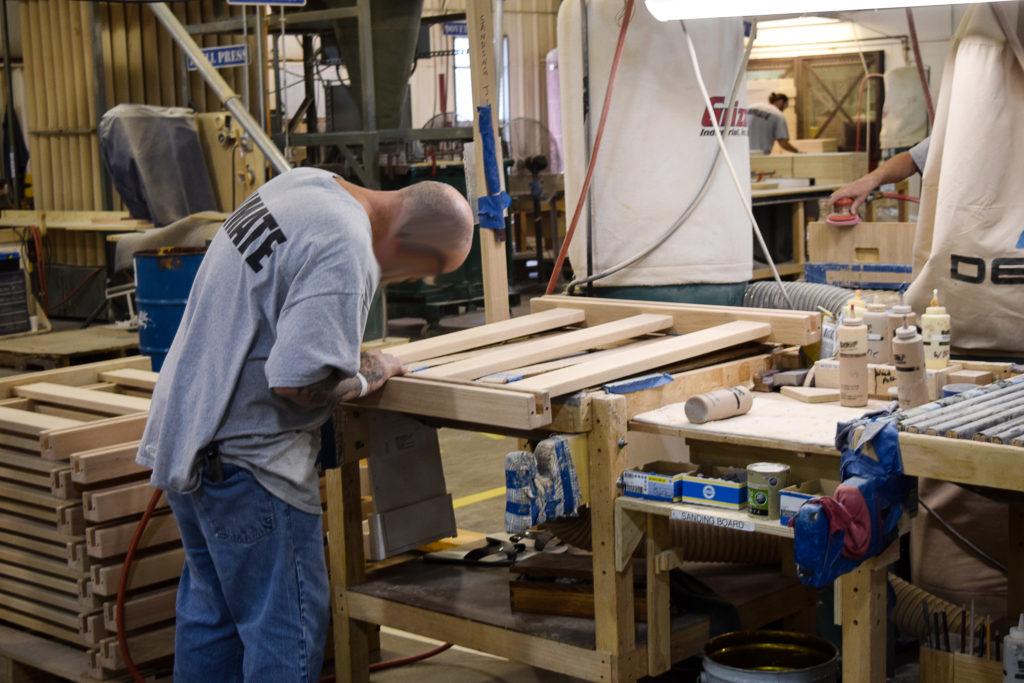
For approximately 25 years, Iowa Prisons Industries (IPI) — a non-profit extension of the Iowa Department of Corrections — has provided dorm furniture and renovations for Grinnell College. The College’s relationship with IPI concerns many students who believe a progressive college should not employ prison labor in its operations.
Grinnell College, University of Iowa, Iowa State University and University of Northern Iowa, among many other private schools and community colleges, purchase furniture from IPI. Other state institutions and public services such as hospitals and churches own goods made by IPI participants. Private citizens and organizations cannot purchase these goods unless they are part of the state or non-profit sector in Iowa. IPI receives no appropriations from the state; the program relies on the sales of their products to pay for equipment, workers, victim compensation and more. The state of Iowa does not require state agencies to purchase from IPI, and IPI only sells to Iowan institutions, unless special circumstances arise that requires IPI to send out furniture to another prison labor worksite.
The College received a special set of furniture designed by IPI when the College renovated all its dorm furniture, accessible at: http://www.iaprisonind.com/store/c/242-Grinnell-Group.aspx. At the Iowa State Penitentiary, a maximum-security prison for men, IPI participants build the Grinnell furniture, and participants from Newton Correctional Facility move in the furniture and renovate dorms. According to FM’s budget report, the College spent $9,135 on new furnishings, and $1,800 for moving labor to renovate Haines Hall on South Campus last summer.
“[IPI has] great value and also crew size. … It’s difficult to get a dedicated crew in a short time frame to do that kind of work because you need a crew of roughly eight to ten people, very physical labor. … There are very few resources available, commercially,” said Rickey Whitney, director of Facilities Management at the College.
Whitney, along with President Raynard Kington, believe that the College’s relationship fits the school’s values by supporting the vocational side of rehabilitation, one of the main goals of prison sentencing. Simultaneously, Kington believes that the College supports the educational side of rehabilitation through the Liberal Arts in Prison Program, a program in which Grinnell College students design classes, teach and tutor incarcerated people in Iowa. Rather than buy furniture from companies that may have bad working conditions or from companies notorious for their malpractices, Kington argues that the College should support organizations like IPI that operate to improve the lives of others.
“If we did not think [IPI] was consistent with our values, we wouldn’t do it whether it was a good service or not,” Kington said. “[The College] sees ourselves as trying to play a positive role in our broader community. … We had to buy [furniture] from somewhere, why not buy from some place that’s allowing for prisoners to prepare for the world they’re going to enter when they leave?”
Concerned students have contacted Kington and the rest of the administration, urging for the College to reevaluate its relationship with IPI. However, with the recent revelation of the relationship between the College and IPI unearthed among current students, many find it hard to organize against or for a cause they have little information on, other than their reluctance to support the prison-industrial complex in any way.
“I think that divestment from Iowa Prison Industries could be a productive option, but it may not be the best one,” said Nate Williams ’20. “It might make more sense to try to negotiate our existing contract and support better wages and labor conditions for those incarcerated and working in the industry. Either way, I think before moving forward, the most important step is to reach out to those working in the industry and ask them what solidarity from our end would look like, whether it’s divestment, contract negotiation or something else.”
Johnny Buse ’11, an educator based in Chicago public schools, also feels skeptical about the College’s use of IPI, especially since the relationship is not widely known. For Buse, the use of cheap labor runs counters to the values of the College.
“I’d like to see the College contract with a union-supported furniture maker,” Buse said. “Even before we talk about prison labor, we should be employing, sourcing school materials to workers who get a fair pay.”
For the time being, the College will not stop buying from IPI unless information appears that exposes IPI for wrongdoings, yet Kington appreciates the voiced concerns by students and alumni.
“I think it’s great that students are asking the questions, but I think there’s a compelling answer that justifies our continuing with the program,” Kington said. “I think it’s the right thing to do, and I think many of us certainly believe that there’s a major problem in our criminal justice system that has led to the highest rate of incarceration of any western society … [but] this is not the primary problem within that discussion.”
Kington urges students to consider the nature of the work arrangement before commenting on the College’s relationship with IPI. Students, Kington believes, may mistake the stated mission of IPI with the large-scale problems of criminal justice in the United States.
“Do the critical analysis of [it] before you get uncomfortable, ask yourself why you are uncomfortable and go through the questions,” Kington said. “And if you are uncomfortable because they are our prison system, then I would focus on our prison system. … Think of the skills that [the College] teach[es], critical thinking [and] thoughtful analysis. … Think about the big questions and what [you] can learn, and then make a decision about whether your discomfort is valid. If it is, ultimately you can apply to live off-campus but if you are uncomfortable because of what is happening with prisons primarily in this country, then focus on that.”
According to a study conducted in 2013 using Pew Research methods, IPI accounted for eight percent of the recidivism rate in Iowa. Recidivism is defined as when a formerly incarcerated person commits a second offense after they have received sanctions or undergone intervention for the previous offense. In theory, incarceration serves to rehabilitate a person who has committed an offense. Thus, the rate of recidivism helps to display how effective offender sentencing is in decreasing criminal activity. States use educational and vocational services to achieve low recidivism rates.
According to Professor Logan Lee, economics, there are a lot of considerations to keep in mind when thinking about the issue of using prison labor. Much of Lee’s research focuses on the economics of crime, prisons and prisoners. For Lee, the best case scenario is one in which prison labor ends up helping to reduce rates of recidivism.
“Two thirds of prisoners [nationally] end up returning to prison within three years. That’s absurdly high, and it’s largely because they can’t get jobs — they get out, they try to get jobs, nobody wants to hire ex-cons, and so they recidivate.”
“Breaking that cycle, I think, through job training, would make everything else, even the low wages paid before, utility-increasing for everybody,” Lee concluded.
Professor Doug Hess ’91, political science, offered similar sentiments.
“It sounds like there’s some evidence that [IPI] does seem to do that, it does seem to reduce recidivism in prisoners,” Hess said. “So that’s a social benefit, assuming it outweighs the cost of the program.”
However, Hess questioned whether that benefit might be worth the risk of allowing for the possibility of forced or coerced labor as a means of punishment.
“That aspect of a job program that is punitive, in a sense, even if you’re given some reward for doing it. … That sort of labor as punishment, I think, is really reprehensible,” he said.
In 2016, Iowa had a recidivism rate of 34 percent, among the lowest in the country. However, this rate is an increase from 2014, when recidivism was at its lowest point of the decade at 29 percent. Some attribute the increase to an overall increase of incarcerated people. Disparities between African-American/Black and white incarcerated people has declined over time, yet recidivism among people with mental illness has increased. Some contribute the rise in recidivism among people with mental illness to the closure of many mental health facilities in Iowa.
IPI offers employment at the prison sites through Traditional Industries, Farms and the Private Sector Work programs. Traditional Industries and Farms work within the IPI site, while the Private Sector Work program contracts incarcerated people who will be released within three years to a private, commercial job. Participants in the Private Sector Work program receive a wage of $10 to $14 an hour, while pay in Traditional Industries lie between 67 cents and $1 per hour. Participants use their paycheck to purchase from the canteen, and prison savings accounts, according to IPI participant Bobbie Lopez, cap at $100, or are given to their family. IPI jobs pay more than jobs offered through Iowa correctional facilities, which incentivizes incarcerated people to apply for IPI. Just as with job applications outside of prison, incarcerated people must go through a screening process that includes an interview and background check that takes into consideration their behavior while in prison. All of Iowa’s nine state-owned prisons contract with IPI to cover the vocational portion of rehabilitation.
“Participation in the IPI program does not depend upon what a person did to get themselves sent to prison,” wrote Dan Clark, director of IPI, in an email to The S&B. “We don’t look at their crime. It’s very important that we provide every offender with an opportunity to join IPI (there is normally a waiting list).”
Clark served on the IPI Advisory Board for seven years as the manufacturing representative before becoming the director in 2011. He strongly believes in IPI and the effects that the organization brings, and lauds the commitments the College makes to Iowa’s incarcerated people through its support of IPI and Liberal Arts in Prison.
“There is a shortage of ‘middle skill’ employees in Iowa right now,” Clark wrote. “The IPI program trains exactly these kinds of skills — welding, driving a forklift, operating production machinery, etc. We also train men and women in ‘lean manufacturing’ and certify them. As a result, employers are calling us daily, wanting to know if anyone is getting released in such-and-such area. The Department of Corrections works closely with [the state employment agency] Iowa Workforce Development [IWD] to help match releasing offenders and Iowa employers, and in fact there are IWD employees ‘embedded’ in several of our prisons. The IWD folks help offenders prepare their resume, search the internet for job openings in their home area, and even arrange interviews prior to being released.”
Although IPI has connections to job sites and IWD, Clark admits that it is often difficult for released offenders to secure jobs due to the stigma that clings to people who have been in prison. Additionally, the changing job market has made many jobs obsolete, or not widely available as in the past. Yet the number of middle skill jobs needed to be filled has made more businesses open to the idea of hiring released offenders.
“Offenders are generally prohibited from using the internet, email and telephone, and so this limits our ability to train for certain occupations — website developers for example,” Clark wrote. “But honestly, in today’s environment, employers are asking just to find people that are reliable and will show up to work, can work as part of a team, have decent reading and arithmetic skills, and generally just want to work. If they can hire that sort of person, they figure they’ll train them from there.”
Clark also stresses that aside from IPI setting up jobs for released offenders, IPI does offer a break from the stresses of prison life. In particular, IPI worksites have an environment that differs from the main prison facility.
Several prisoners working for IPI at the Iowa Correctional Institution for Women in Mitchellville expressed satisfaction with their jobs. The IPI facility at Mitchellville does not produce the furniture used in Grinnell’s dorms. But the facility does have operations in sewing, furniture-making and upholstery, construction of cubicles and workspaces and manufacturing of plastic garbage bags. The yellow bags used by the City of Grinnell for trash pickup are produced at this facility.
“It’s more, hands-on out here, and there’s a lot more learning experience,” said Lopez, who currently works sewing medical scrubs.
Lopez stressed that anyone working in any area of the IPI facility could gain experience at any of the other areas if they wished.
“Even though we’re in the sewing department, we have one of our sewers right now that’s over helping on the other side. So, just, different,” Lopez said. “And the only other learning experiences that are inside the gate would be the kitchen, you know, so I just think there’s more opportunity out here.”
Emiley DeVore, a team lead for the cubicle panel and workspace construction operation, appreciates how IPI gives her the opportunity to produce something real.
“We have a job right now that includes like, over 800 panels and 30 work surfaces,” DeVore said, “and we’ve been on this job for a month, and it’s due Monday, so we’re still working at it, it’s due on Monday, so it’s crunch time. It’s really a test of time, and I know we’ll get it done, but this has been a labor of months for us, this is our baby going out, you know?”
“People want to come to work here because there are so many things you can do,” DeVore said. “It’s all a specialty that you pick up . … You can stay there and learn the specialty of making fifty different kinds of chairs. And every day you’ll make a different one. And then the knowledge of that picks up, and you can say to yourself, ‘I know how to do all these aspects of this job.’ And if I don’t use that in my everyday life, because that’s obviously not something that I probably plan on doing, it’s something that teaches me discipline every day.”
Monsheeka White, who works as the clerk and a team leader for the panels and chairs departments, echoed this sentiment, especially with respect to the choice to work for IPI rather than inside the prison.
“[I wanted to work for IPI for] financial reasons, and also I wanted to learn something more fundamental for when I was released back into society,” White said.
A key aspect of what makes the IPI job desirable for White is how it feels like a real job, unlike jobs inside the prison where she’s constantly reminded of where she is.
“This is more like a traditional warehouse setting. It takes you away from the prison in a sense, because you’re leaving all institutional things behind when you come here,” White said. “It’s actually like a real work area, … so it’s like you’re leaving the institution in your mind frame, and it’s like you’re leaving those fences to go to work, like you would in a car.”
“My own rehabilitation is all within myself, and how I want to be when I get out,” White added. “I feel like IPI gives you more of an encouragement for rehabilitation. I’m not saying the jobs on grounds don’t, but it just gives you more to work forward to.”















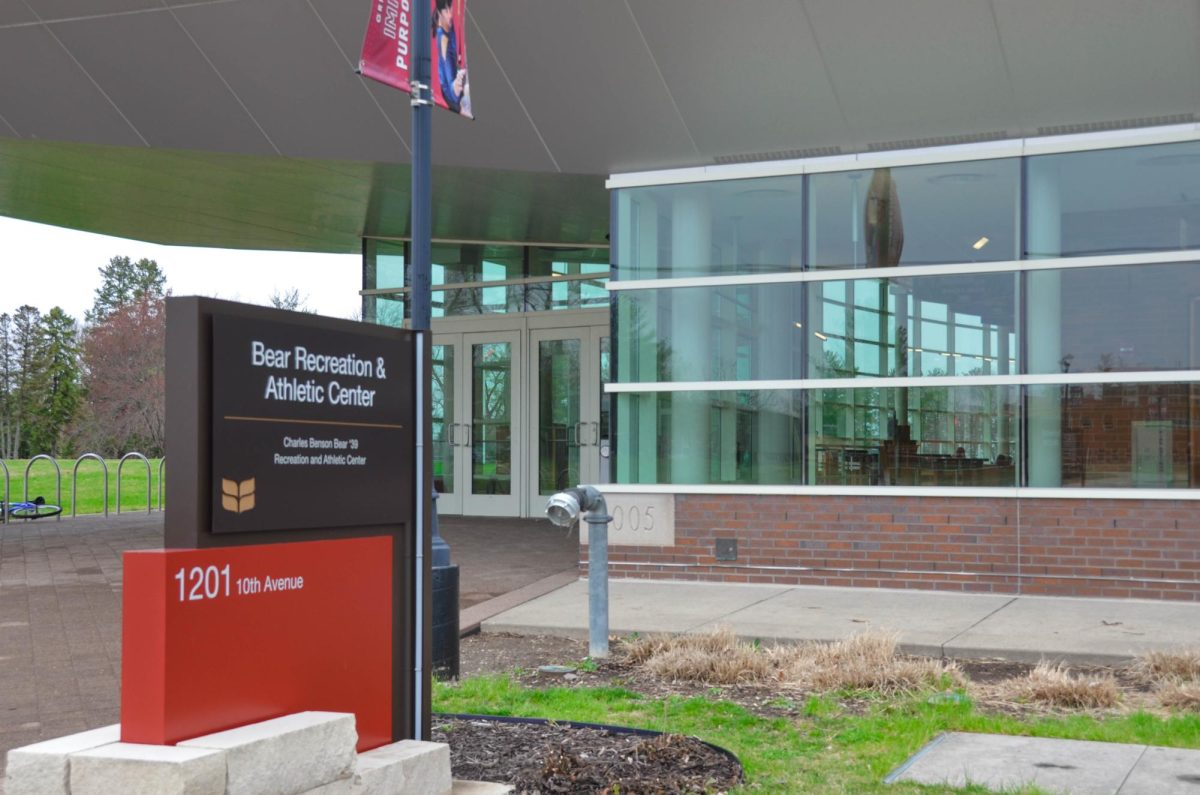











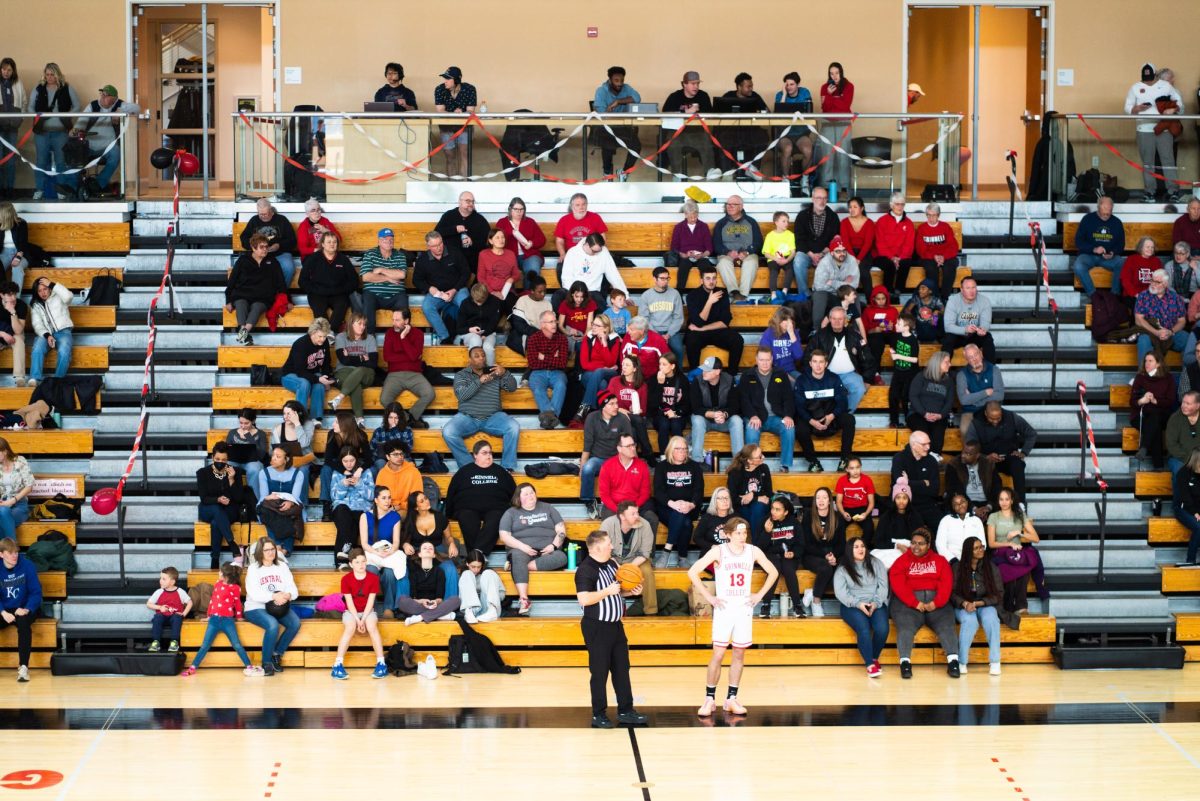












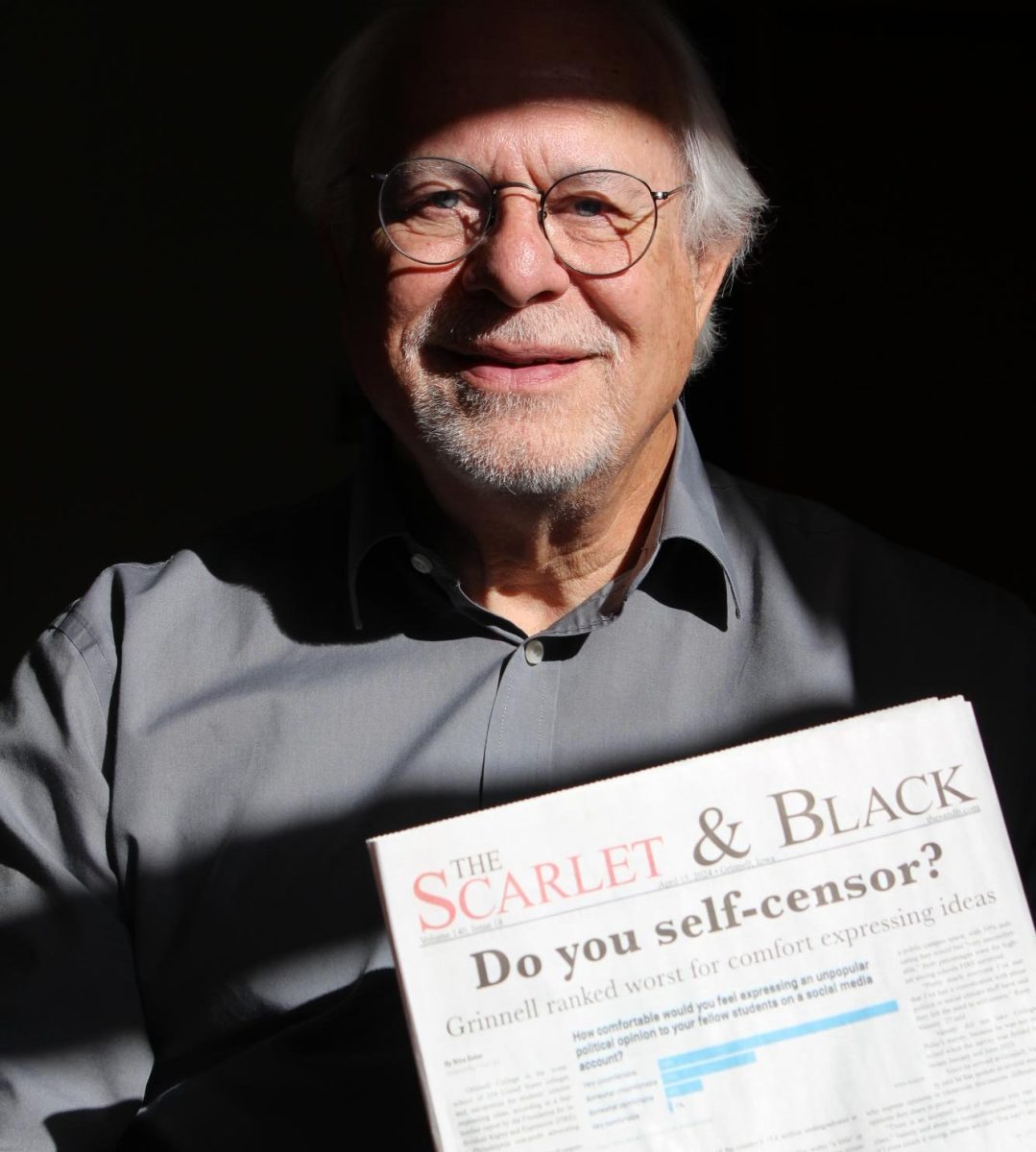

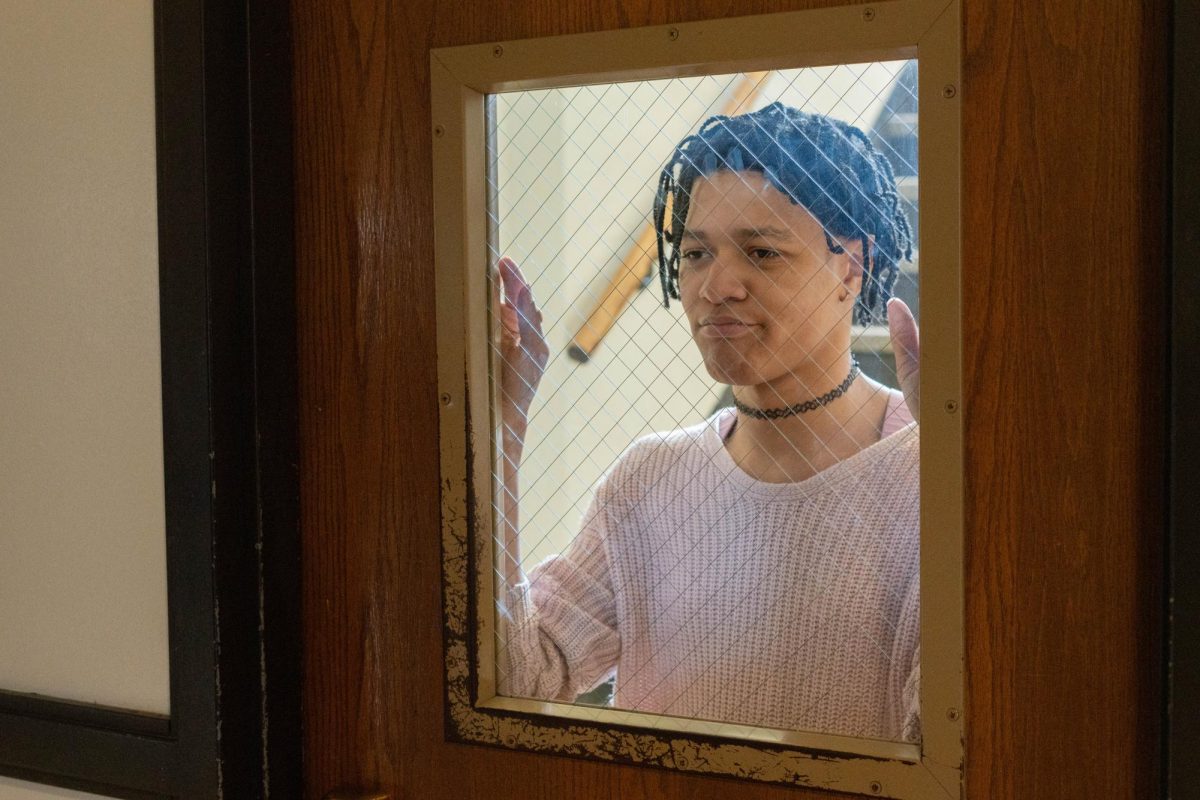



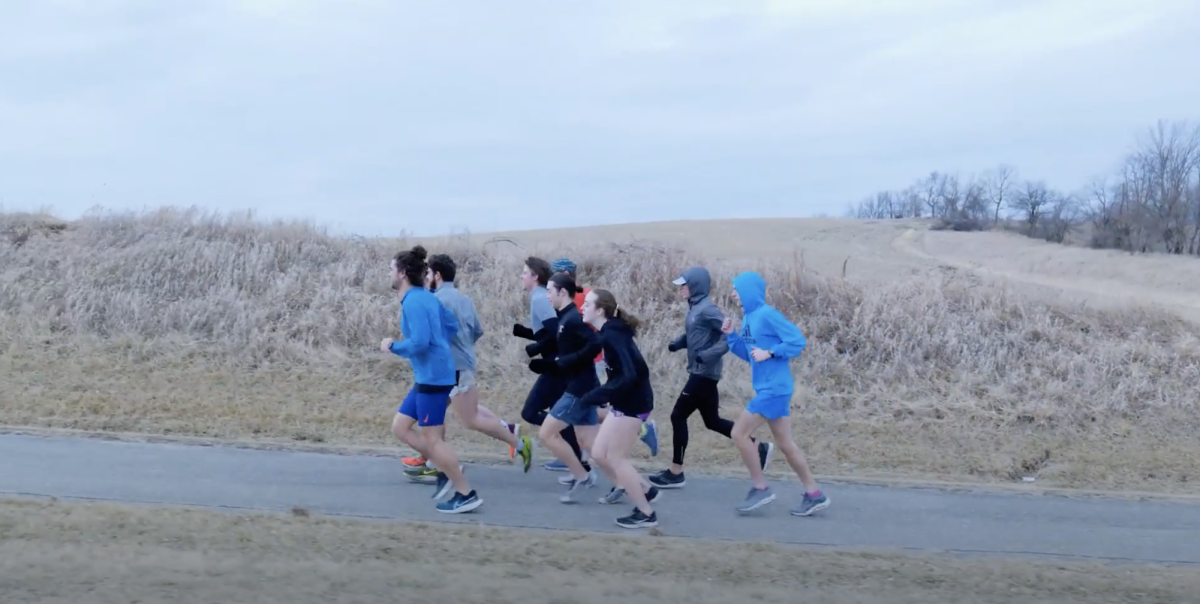



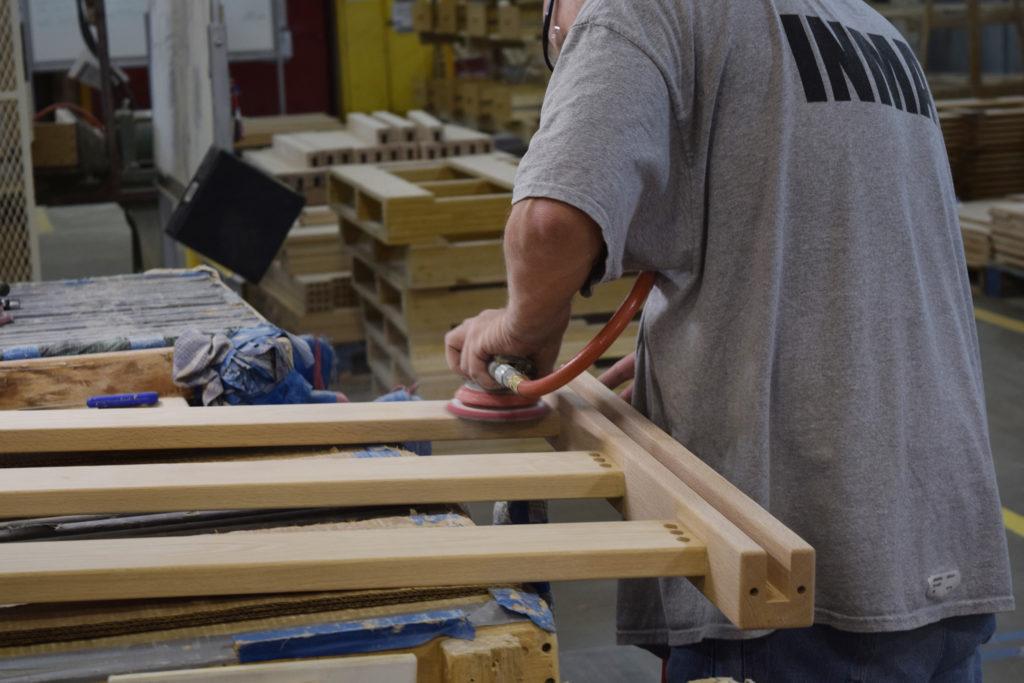







IHE • Nov 3, 2017 at 9:07 am
Kington uses a classic deflection strategy here — “go get your facts on the rehab, etc….” He’s directing attention to facts about rehabilitation, training, etc., in order to direct attention away from the other fact the college is paying below market. If the college was truly committed to these “values”, they wouldn’t pay such a low price. Why not pay the going wage-rate and produce-rate (not a premium, but not a discount either). Kington can’t have it both ways — highlighting the social value while taking advantage by failing to remunerate at a fair rate — and is a pattern seen all too often from his office.